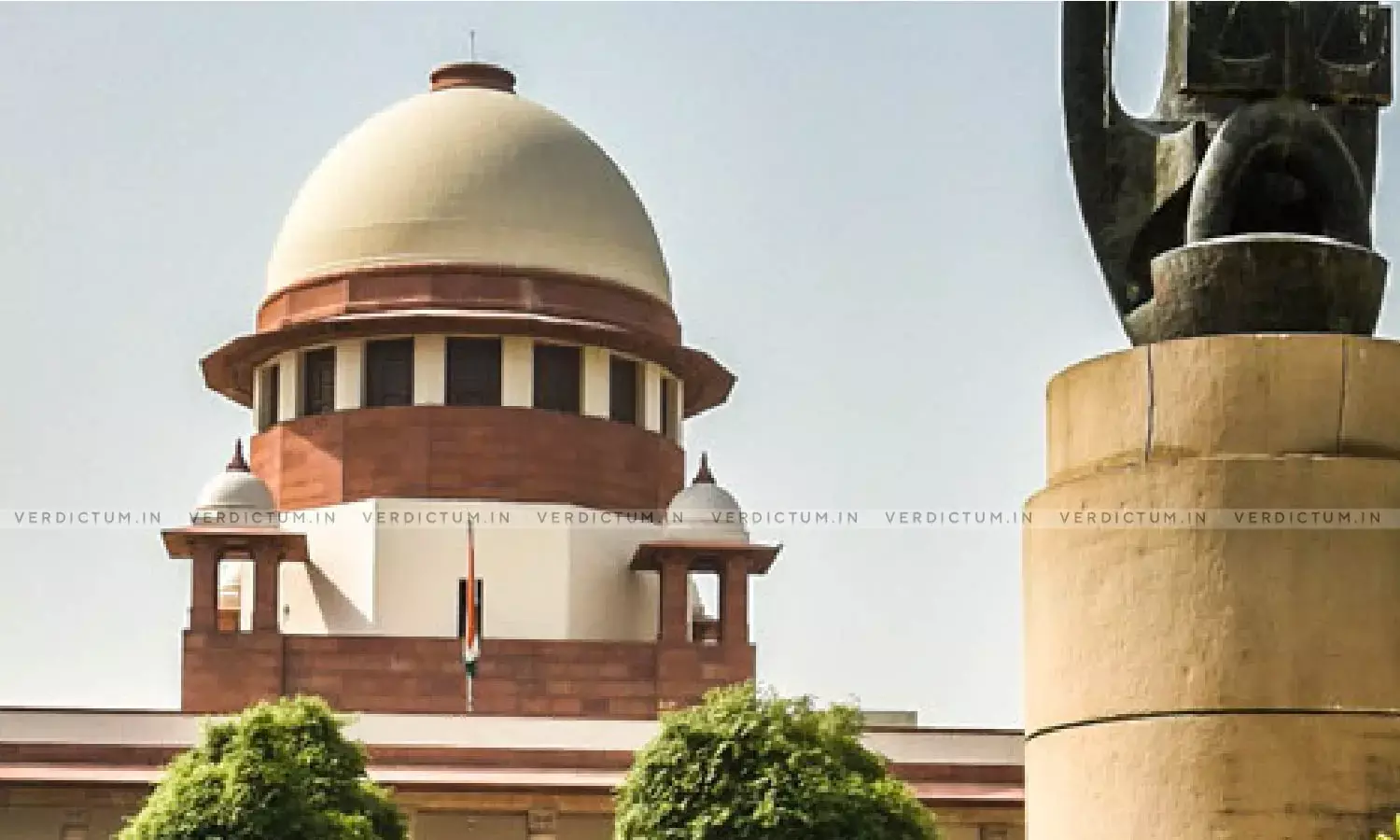Execution Application Can Be Dismissed If Decree Is Unmistakably Found To Suffer From Inherent Lack Of Jurisdiction Of Court That Passed It: SC

The Supreme Court held that the executing court can dismiss an execution application if the decree put to execution is unmistakably found to suffer from an inherent lack of jurisdiction of the court that made the same rendering it a nullity in the eye of law.
The Court held thus in an appeal arising out of an objection under Section 47 of the (Civil Procedure Code) CPC in an execution application filed before the Executing Court.
The three-Judge Bench of Justice B.R. Gavai, Justice Dipankar Datta, and Justice Aravind Kumar observed, “The legality of the order of the High Court, together with the order of the Executing Court that the former went on to uphold, has to be tested having regard to the settled position of law as noticed above and bearing in mind that the powers of an executing court, though narrower than an appellate or revisional court, can be exercised to dismiss an execution application if the decree put to execution is unmistakably found to suffer from an inherent lack of jurisdiction of the court that made the same rendering it a nullity in the eye of law.”
The Bench also held that the Executing Court and the High Court were right in holding that the objection raised by the respondents to the executability of the decree was well-founded.
Senior Advocate Meenakshi Arora appeared for the appellants while Advocate Preetika Dwivedi appeared for the respondents.
In this case, the respondents i.e., the purchasers had filed an objection under Section 47 of the CPC in an execution application filed before the Executing Court by the appellants. It was urged, based on the case pleaded therein, that the decree put to execution was inexecutable. The Executing Court, in 2008, allowed the objections of the respondents, resulting in dismissal of the execution application and a revision was carried by the appellants from the said order before the Revisional Court which, vide its order, dismissed the objection filed by the respondents.
The Revisional Court directed the Executing Court to proceed with the execution of the decree whilst treating such objection as non-maintainable. The revisional order was challenged by the respondents in an application under Article 227 of the Constitution before the Allahabad High Court. The High Court, by its judgment and order, quashed the order passed by the Revisional Court and relegated the parties to the remedy of having their rights, in respect of the suit property, adjudicated by the appropriate forum. Hence an appeal was filed before the Apex Court against the said judgment and order of the High Court.
The sole question of law that arose for consideration before the Supreme Court was whether the impugned order suffered from a jurisdictional error so grave that the decree drawn up subsequently is incapable of execution by the Executing Court and an objection that it is inexecutable was available to be raised under Section 47 of CPC by the respondents.
The Court in the above regard noted, “In Vasudev Dhanjibhai Modi v. Rajabhai Abdul Rehman, this Court was considering the scope of objection under section 47 of the CPC in relation to the executability of a decree. Therein, it was laid down that only such a decree could be the subject-matter of objection which is a nullity and not a decree which was erroneous either in law or on facts.”
It also referred to the case of Rafique Bibi v. Sayed Waliuddin (2004) 1 SCC 287 in which it was clarified that the lack of jurisdiction must be patent on the face of the decree to enable an executing court to conclude that the decree was a nullity.
“Hence, it is clear that all irregular or wrong decrees would not necessarily be void. An erroneous or illegal decision, which was not void, could not be objected in execution or incidental proceedings”, it further added.
Accordingly, the Apex Court dismissed the appeal and upheld the judgment of the High Court.
Cause Title- Asma Lateef & Anr. v. Shabbir Ahmad & Ors. (Neutral Citation: 2024 INSC 36)
Appearance:
Appellants: AOR Rahul Narayan, Advocates Shashwat Goel and Palak Vasishtha.
Respondents: AORs Abhishek Chaudhary and Adarsh Upadhyay.


